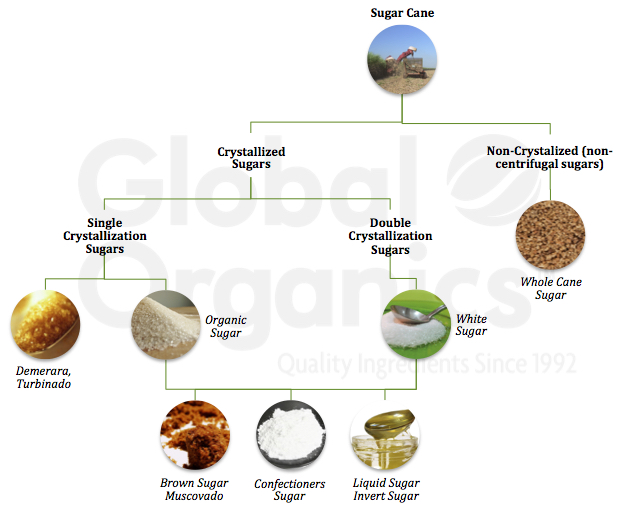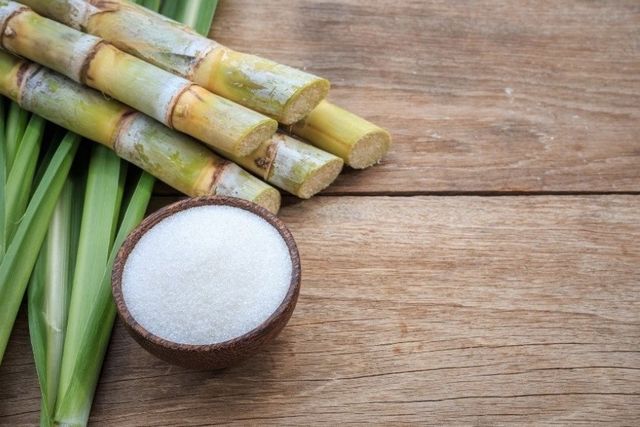Why Walking Stick Sugar Handling Chemicals Are Essential for Modern Sugar Refining
The duty of walking cane sugar processing chemicals in modern-day sugar refining can not be overstated, as they are important to enhancing both the performance of removal and the overall high quality of the end product. Agents such as phosphoric acid and particular flocculants are utilized to get rid of pollutants, resulting in sugar that not only satisfies consumer assumptions however likewise sticks to sector requirements. The implications of these chemicals extend past quality, touching upon market characteristics and environmental factors to consider. sugar and cane. This elevates important concerns concerning the sustainability of such methods and their effect on the future of sugar production.
Duty of Processing Chemicals
The efficacy of walking stick sugar processing pivots dramatically on the critical application of handling chemicals. These chemicals play a crucial function in improving the efficiency and quality of sugar removal and refining. From the initial stages of juice extraction to the final purification actions, processing chemicals help with various vital procedures.
In the extraction stage, chemicals such as phosphoric acid and calcium hydroxide are used to maximize the information process, assisting to remove impurities and suspended solids from the walking cane juice. This not just enhances the return yet additionally ensures the clarity of the end product. In addition, representatives like flocculants help in the rapid settling of impurities, consequently enhancing the overall procedure.
Triggered carbon and ion exchange materials offer to remove shade and odor, making sure that the refined sugar fulfills consumer quality requirements. Hence, the thorough choice and application of these chemicals are vital for achieving optimal outcomes in walking stick sugar handling.
Trick Sorts Of Chemicals
Walking stick sugar handling depends on a selection of crucial chemicals that facilitate each stage of production. These chemicals play vital duties in clarifying, whitening, and cleansing the sugar extracted from walking stick.
One main classification of chemicals includes flocculants, such as polyacrylamide, which aid in the information process by promoting the gathering and settling of contaminations. Furthermore, calcium hydroxide is commonly employed to reduce the effects of level of acidity and assist in the removal of non-sugar parts.
Whitening agents, such as turned on carbon and sulfur dioxide, are used to decolorize the syrup, leading to a more clear final product. These chemicals assist eliminate shade compounds that may impact the sugar's look and marketability.
Additionally, phosphoric acid functions as a pH regulatory authority during the processing phases, ensuring ideal problems for the enzymatic activities entailed in sugar removal and purification.
Other vital representatives include edta (ethylenediaminetetraacetic acid), which chelates metal ions that can catalyze undesirable responses, and sodium hydroxide, which aids in pH control throughout the refining procedure. Collectively, these chemicals boost effectiveness and guarantee a top quality cane sugar item.
Benefits for Sugar Top Quality
Typically neglected, using certain processing chemicals significantly boosts the overall top quality of cane sugar. These chemicals play a pivotal function in refining processes, making certain that the final product fulfills rigid market standards for pureness and preference.

Furthermore, processing chemicals help in achieving a consistent granulation and appearance, which are critical for consumer approval. By regulating the condensation process, these chemicals guarantee that the sugar crystals form uniformly, resulting in an extra attractive product that dissolves well in numerous applications.
Additionally, making use of these chemicals can enhance the service life of cane sugar by minimizing dampness absorption and microbial development. Overall, the critical application of handling chemicals is necessary for delivering high-quality cane sugar that meets consumer assumptions and industry needs.
Environmental Impact Factors To Consider

Additionally, the energy-intensive nature of sugar refining, intensified by chemical use, usually causes increased carbon emissions. This adds to climate change and raises issues concerning the sustainability of present refining methods. Furthermore, the sourcing of these chemicals may involve practices that threaten biodiversity, such as monoculture farming, which reduces the resilience of farming environments.

To reduce these impacts, sugar refiners are increasingly discovering lasting choices browse this site and embracing best techniques that decrease chemical usage. Executing rigorous ecological administration systems can help ensure that the refining procedure lines up with environmental criteria and promotes biodiversity. Ultimately, a well balanced method that focuses on both sugar top quality and environmental stewardship is essential for the lasting practicality of the sugar industry.
Future Patterns in Refining
As the sugar industry faces the environmental obstacles connected with traditional refining techniques, cutting-edge strategies are emerging to boost both performance and sustainability. One considerable fad is the fostering of green chemistry concepts, which focus on the use of safe, naturally degradable handling chemicals. This shift not just reduces ecological impact however additionally addresses consumer need for cleaner production approaches.
One more encouraging development is the application of advanced filtering modern technologies, such as membrane separation and adsorption procedures. These strategies improve the quality and quality of the sugar while decreasing the quantity of wastewater generated during refining. Furthermore, the assimilation of digital technologies, consisting of IoT and AI, is changing functional efficiency by enabling real-time tracking and anticipating upkeep, hence minimizing resource waste.
Additionally, making use of byproducts from sugar refining, such as bagasse and molasses, is gaining traction. These materials can be exchanged biofuels or value-added items, adding to a circular economy within the industry. Collectively, these patterns indicate a change in the direction of even more lasting methods that not just boost functional performance yet additionally straighten with international sustainability objectives, ensuring the future viability of sugar refining.
Conclusion
Cane sugar processing chemicals are vital in contemporary sugar refining, dramatically boosting the performance and top quality of sugar removal. The critical use these top article chemicals not only boosts the pureness and taste of the last item but additionally guarantees constant crystallization and texture. see here As the industry significantly focuses on sustainability, the fostering of environmentally-friendly processing agents is most likely to form future patterns in refining, ultimately leading to better products and extended rack life for customers.

Inevitably, a balanced method that focuses on both sugar top quality and ecological stewardship is vital for the lasting stability of the sugar industry.
Walking stick sugar processing chemicals are crucial in modern sugar refining, dramatically boosting the performance and quality of sugar extraction.